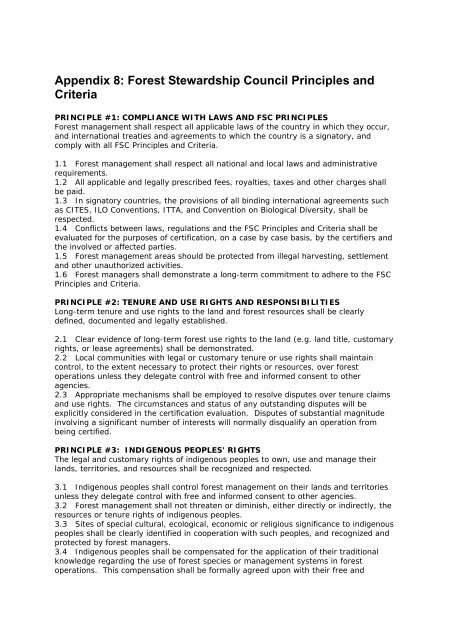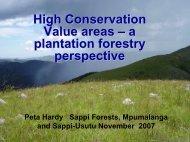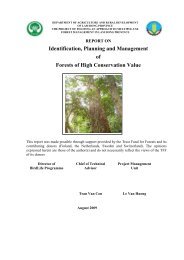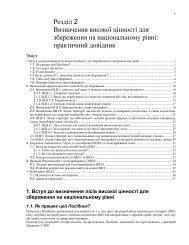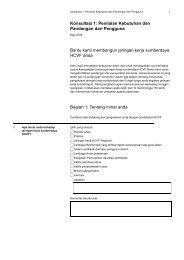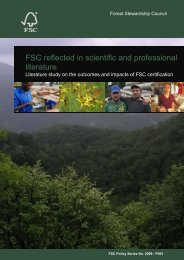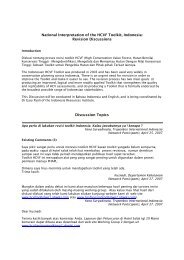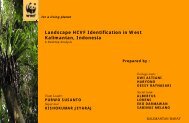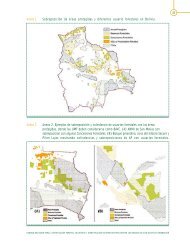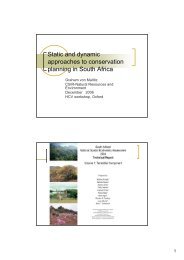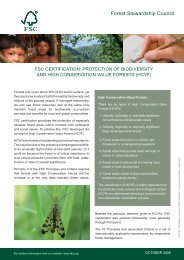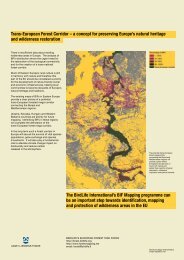English - HCV Resource Network
English - HCV Resource Network
English - HCV Resource Network
You also want an ePaper? Increase the reach of your titles
YUMPU automatically turns print PDFs into web optimized ePapers that Google loves.
Appendix 8: Forest Stewardship Council Principles and<br />
Criteria<br />
PRINCIPLE #1: COMPLIANCE WITH LAWS AND FSC PRINCIPLES<br />
Forest management shall respect all applicable laws of the country in which they occur,<br />
and international treaties and agreements to which the country is a signatory, and<br />
comply with all FSC Principles and Criteria.<br />
1.1 Forest management shall respect all national and local laws and administrative<br />
requirements.<br />
1.2 All applicable and legally prescribed fees, royalties, taxes and other charges shall<br />
be paid.<br />
1.3 In signatory countries, the provisions of all binding international agreements such<br />
as CITES, ILO Conventions, ITTA, and Convention on Biological Diversity, shall be<br />
respected.<br />
1.4 Conflicts between laws, regulations and the FSC Principles and Criteria shall be<br />
evaluated for the purposes of certification, on a case by case basis, by the certifiers and<br />
the involved or affected parties.<br />
1.5 Forest management areas should be protected from illegal harvesting, settlement<br />
and other unauthorized activities.<br />
1.6 Forest managers shall demonstrate a long-term commitment to adhere to the FSC<br />
Principles and Criteria.<br />
PRINCIPLE #2: TENURE AND USE RIGHTS AND RESPONSIBILITIES<br />
Long-term tenure and use rights to the land and forest resources shall be clearly<br />
defined, documented and legally established.<br />
2.1 Clear evidence of long-term forest use rights to the land (e.g. land title, customary<br />
rights, or lease agreements) shall be demonstrated.<br />
2.2 Local communities with legal or customary tenure or use rights shall maintain<br />
control, to the extent necessary to protect their rights or resources, over forest<br />
operations unless they delegate control with free and informed consent to other<br />
agencies.<br />
2.3 Appropriate mechanisms shall be employed to resolve disputes over tenure claims<br />
and use rights. The circumstances and status of any outstanding disputes will be<br />
explicitly considered in the certification evaluation. Disputes of substantial magnitude<br />
involving a significant number of interests will normally disqualify an operation from<br />
being certified.<br />
PRINCIPLE #3: INDIGENOUS PEOPLES' RIGHTS<br />
The legal and customary rights of indigenous peoples to own, use and manage their<br />
lands, territories, and resources shall be recognized and respected.<br />
3.1 Indigenous peoples shall control forest management on their lands and territories<br />
unless they delegate control with free and informed consent to other agencies.<br />
3.2 Forest management shall not threaten or diminish, either directly or indirectly, the<br />
resources or tenure rights of indigenous peoples.<br />
3.3 Sites of special cultural, ecological, economic or religious significance to indigenous<br />
peoples shall be clearly identified in cooperation with such peoples, and recognized and<br />
protected by forest managers.<br />
3.4 Indigenous peoples shall be compensated for the application of their traditional<br />
knowledge regarding the use of forest species or management systems in forest<br />
operations. This compensation shall be formally agreed upon with their free and


